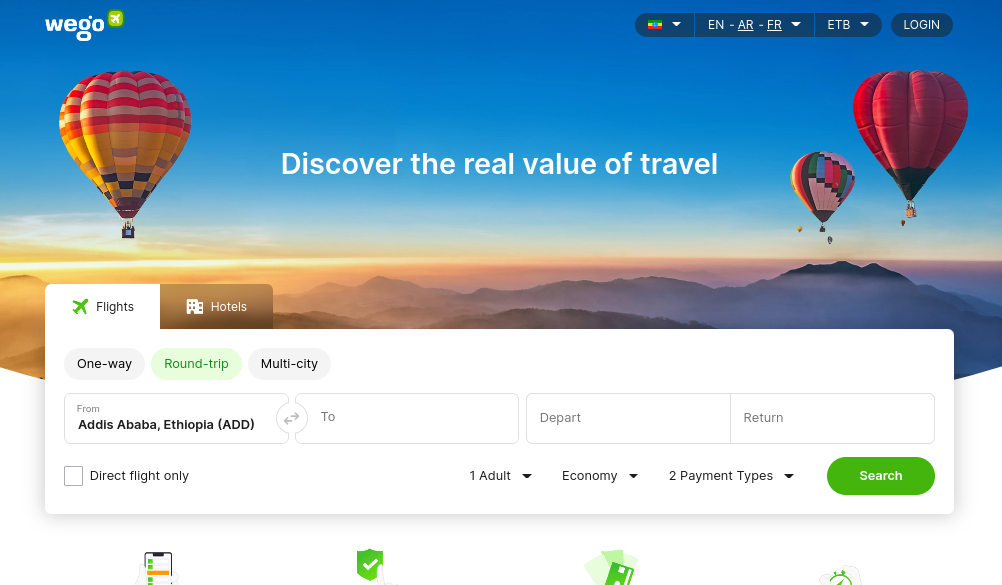Wego. Wego, eine bekannte Reise-App für die Flugsuche und -buchung in der MENA-Region (Naher Osten und Nordafrika), hat mit der Übernahme von Travelstop, einer auf Geschäftsreisen und Spesenmanagement spezialisierten Plattform mit Sitz in Singapur, einen strategischen Schritt in den Geschäftsreisesektor gemacht. Diese Übernahme stellt für Wego einen bedeutenden Schritt dar, der durch die Marktchancen und das Streben des Unternehmens nach Diversifizierung und Wachstum angetrieben wird. In diesem ausführlichen Artikel gehen wir auf die Details dieser Übernahme, ihre Auswirkungen und die beteiligten Akteure ein und beleuchten jede einzelne Facette, um ein umfassendes Verständnis dieses strategischen Manövers zu vermitteln.
Die Akquisition
Die Übernahme von Travelstop durch Wego ist ein entscheidender Moment auf dem Weg des Unternehmens. Während finanzielle Details noch nicht bekannt gegeben wurden, sind die strategischen Auswirkungen erheblich. Ross Veitch, CEO und Mitbegründer von Wego, betonte das Potenzial der Einführung von Geschäftsreise- und Spesenmanagementprodukten der nächsten Generation in Märkten, in denen Wego bereits etabliert ist. Dieser Schritt ist nicht nur eine finanzielle Investition, sondern eine strategische Ausrichtung auf Markttrends und Kundenbedürfnisse.
Die Übernahme von Travelstop bringt mehrere Schlüsselelemente ins Spiel. Travelstop wurde 2017 mit dem Ziel gegründet, die Vorteile des Geschäftsreisemanagements auf kleine und mittlere Unternehmen (KMU) in Südostasien auszuweiten. Das Unternehmen wurde von Prashant Kirtane, Vijay Aggarwal und Altaf Dhamani mitbegründet. Nach einer Seed-Finanzierungsrunde in Höhe von 1,2 Mio. USD erhielt Travelstop 2019 in einer von der im Silicon Valley ansässigen Risikokapitalgesellschaft Accel geführten Finanzierungsrunde 3 Mio. ISD. Dies war die erste Investition von Accel im Bereich Geschäftsreisen und Spesenmanagement in Asien, was das Potenzial und den innovativen Charakter von Travelstops Ansatz unterstreicht.
Hauptakteure
Wego wurde 2005 gegründet und hat sich zur größten Reise-Metasuchmaschine in der MENA-Region entwickelt. Das Unternehmen hat kontinuierlich Investitionen von namhaften Akteuren der Branche angezogen, darunter Tiger Global Management, Crescent Point, Square Peg Capital, Middle East Venture Partners und die MBC Group. Der Weg von Wego im Bereich der Online-Reisemärkte ist gekennzeichnet durch Innovation und das Engagement, seinen Nutzern außergewöhnliche Reiseerlebnisse zu bieten.
Die Gründer von Travelstop, Prashant Kirtane, Vijay Aggarwal und Altaf Dhamani, brachten ihre umfassende Erfahrung in der Reisebranche ein, um eine Plattform zu schaffen, die auf die Bedürfnisse von KMU zugeschnitten ist. Der Fokus des Unternehmens auf die Rationalisierung des Reisemanagements und die Automatisierung von Ausgabenprozessen hat Aufmerksamkeit und Investitionen geweckt. Die enge Beziehung zwischen Ross Veitch und den Gründern von Travelstop, die auf ihre frühere Zusammenarbeit bei Yahoo zurückgeht, spielte eine wichtige Rolle bei dieser Übernahme.
Bruttobuchungswert
Um eine finanzielle Perspektive zu bieten, ist es wichtig, den Bruttobuchungswert (GBV) dieser Unternehmen zu betrachten. Obwohl die genauen Zahlen für die Übernahme nicht bekannt gegeben wurden, hätten Wego und Cleartrip Middle East bei einer Fusion im Jahr 2019 einen Bruttobuchungswert von fast 2 Milliarden USD erzielt. Cleartrip, einschließlich seines Indiengeschäfts, das nicht Teil der Übernahme ist, hätte 2019 einen Bruttobuchungswert von 1,5 Mrd. USD erzielt. Wego selbst hat Berichten zufolge im Jahr 2017 ein Bruttobuchungsvolumen von 1 Mrd. USD erzielt, wobei etwa die Hälfte davon aus dem einige Jahre zuvor erfolgten Einstieg in den Nahen Osten stammt. Ross Veitch erklärte, dass Wego davon ausgeht, diese Buchungsrate bis Ende dieses Jahres wieder zu erreichen.
Implikationen und Chancen
Die Übernahme von Travelstop durch Wego erfolgt zu einer Zeit, in der die Geschäftsreisebranche einen bedeutenden Wandel und Aufschwung erlebt. Nach Angaben der Global Business Travel Association (GBTA) erreichten die Geschäftsreisen im Nahen Osten und Afrika im Jahr 2022 beeindruckende 86 % des Niveaus von 2019 und übertrafen damit die Erholung in Nord- und Südamerika, im asiatisch-pazifischen Raum und in Europa. Die Region ist auf dem besten Weg, bis 2024 zu den Ausgaben für Geschäftsreisen aus der Zeit vor der Pandemie zurückzukehren, was für einen robusten Marktausblick spricht.
Nach Schätzungen der GBTA werden der Nahe Osten und der asiatisch-pazifische Raum im Jahr 2022 voraussichtlich 46 % der weltweiten Gesamtausgaben für Geschäftsreisen auf sich vereinen. Damit sind sie die größten und am schnellsten wachsenden Märkte im Geschäftsreisesektor. Insbesondere der Nahe Osten hat eine bemerkenswerte Widerstandsfähigkeit seines Tourismussektors bewiesen und verzeichnete die stärkste Erholung nach der Pandemie weltweit.
Die von Wego durchgeführte Analyse der Buchungen ergab, dass etwa 30 % der Buchungen auf selbst organisierte Geschäftsreisen entfielen. Diese Daten stellen eine große Chance dar. So sind beispielsweise häufige Szenarien wie eine Reise von Dubai nach Riad für einen einzelnen Erwachsenen, der am Sonntagmorgen abreist und am Donnerstagabend zurückkehrt, weit verbreitet. Mit dieser Übernahme ist Wego in der Lage, den Übergang dieser einzelnen Mitarbeiter zu verwalteten Geschäftsreiselösungen zu erleichtern und in der Folge die Reisemanagementdienste auf ganze Organisationen auszuweiten.
Die Chance für Wego
Der Zusammenschluss von Wego und Travelstop zielt darauf ab, sich als One-Stop-Lösung für das Geschäftsreisemanagement zu positionieren. Das Hauptziel besteht darin, eine bessere Transparenz und Kontrolle über die Ausgaben zu bieten, was für Unternehmen, insbesondere in Schwellenländern, von entscheidender Bedeutung ist.
Auf die Frage nach der Organisationsstruktur nach der Übernahme antwortete Ross Veitch: "Prashant Kirtane wird CEO von Travelstop bleiben und Travelstop wird als unabhängiges Unternehmen innerhalb der Wego Gruppe agieren, aber wir werden in vielen Funktionen eng zusammenarbeiten." Dieser kooperative Ansatz spiegelt die Absicht wider, die Stärken beider Unternehmen zu nutzen und gleichzeitig ihre unterschiedlichen Identitäten zu bewahren.
Prashant Kirtane, CEO und Mitbegründer von Travelstop, betonte den Fokus auf Produktinnovation und Kundenzufriedenheit. Dieses Engagement steht im Einklang mit der Vision, neue Branchenstandards zu setzen und die Zukunft der Geschäftsreisen neu zu definieren.
Fazit
Die Übernahme von Travelstop durch Wego ist nicht nur ein strategischer Schritt, sondern auch eine bedeutende finanzielle Investition in die Zukunft des Geschäftsreiseverkehrs. Mit einer starken Präsenz in der MENA-Region und der Expertise von Travelstop im Bereich Geschäftsreisen und Spesenmanagement ist diese Partnerschaft gut positioniert, um die besonderen Herausforderungen von Unternehmen in Schwellenländern zu meistern. Die gemeinsame Plattform soll Komfort, Kosteneffizienz und eine bessere Kontrolle über die Ausgaben für Geschäftsreisen bieten und damit die Zukunft der Geschäftsreisen für Unternehmen im Nahen Osten, Nordafrika und im asiatisch-pazifischen Raum neu definieren.
